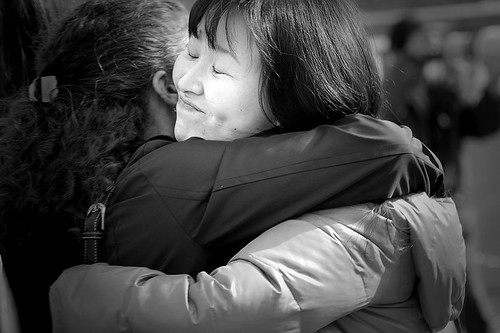
Many people are affected by a fear of other people and social situations. It often starts during teenage years and impacts the lives of millions of people every single day. If you suffer from it, day to day situations, like catching a bus or walking around the shops, can seem intimidating due to the social anxiety of being viewed in a negative way or responded to in a unfavorable manner by strangers. Fortunately, a great deal of research has been carried out on social anxiety disorder in the past few decades and we now have a method for rewiring the thought processes which trigger social anxiety disorder. Cognitive behavioral therapy has helped many sufferers of social anxiety disorder to overcome their social anxiety disorder and live a more happier life.
RETRAINING YOUR BRAIN SO IT DOESNT TRIGGER FEELINGS OF SOCIAL ANXIETY DISORDER
Cognitive behavioural can be a very effective way of coping with mental problems like social anxiety disorder or depression. Having said that, not everybody who benefits from cognitive behavioural needs to suffer from a mental disorder. It can be used to deal with all sorts of situations that cause anxiety.
The aim of cognitive behavioral is to help the patient to handle the underlying triggers of their anxiety, instead of just providing ways of managing it. Cognitivebehavioural therapy helps patients to manage the indications of mental distress and avoid a relapse of other mental symptoms. It can also be used to treat a psychological disorder when medication is not delivering any beneficial results. Cognitive behavioural therapy can also help fix quarrels in personal relationships and help people to deal with extreme or unbearable emotions, like anger and grief.
WHAT IS COGNITIVE BEHAVIORAL THERAPY?
Cognitive behavioral therapy is an ordinary form of psychological counselling that's generally known as “psychotherapy”. Rather than just provide a list of coping strategies, cognitive behavioral therapy teaches patients to recognize and counter the inaccurate, unhelpful beliefs causing their anxiety.
Through cognitive behavioural therapy, a patient works together with a mental health expert attending a specific series of psychotherapy sessions to deal with the beliefs generating their social anxiety disorder. The patient is taught how to view social situations more rationally and how to respond to them in a more healthy way which wont trigger the undesirable thoughts that trigger their social phobia. By enabling you to become attentive of incorrect or negative thought processes, cognitive behavioural therapy helps you to assess challenging situations more clearly and react to them in a more healthy way.
WHAT ELSE CAN COGNITIVE BEHAVIOURAL THERAPY HELP WITH?
Cognitive beahvioural therapy can be used to alleviate many other mental health conditions, such as schizophrenia, eating disorder, substance abuse, personality disorder, depression and phobias. In serious cases, cognitive behavioural therapy can also be combined with medication, to help reduce the symptoms so that people suffering from social phobia can address the triggers more comfortably.
Along with practicing cognitive behavioural therapy strategies, it’s advisable people suffering from social anxiety make changes in lifestyle that can elevate their self esteem . This can include regular exercise, which also releases feel good endorphins, becoming more active and engaging in hobbies that include healthy connections with other people, like joining a book club, hiking or learning to sail.
Getting over social anxiety disorder is a long-term objectiveConquering the damaging thoughts and emotions of social phobia wont happen instantly}. But with the right techniques and a goal driven strategy it can be done so you will be able to live a happier, more fulfilling life freed from the irrational emotions of social anxiety when around total strangers.
